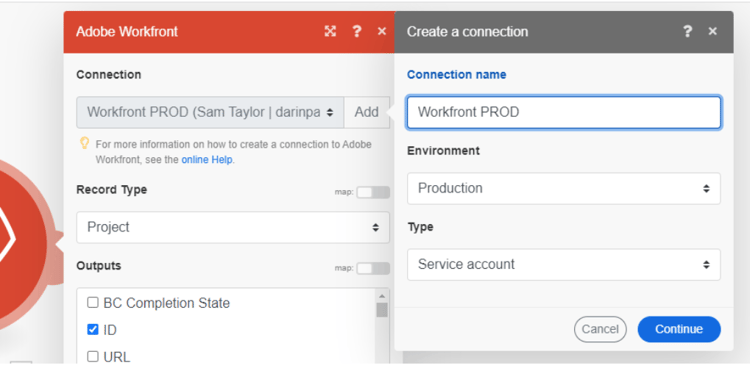Connection metadata
Fusion uses metadata to identify important attributes of a connection.
Connection metadata can be set when creating a new connection. These attributes are in the same dialog box used for setting up a connection:

Fusion users can view and edit connections from the Connections area. You can reach the Connections area by clicking Connections in the left navigation.

Environment Type
Fusion connections can be used by both production and non-production systems. You can mark the type of environment a connection connects to, which helps protect production environments.
The environment type, like other connection metadata, is used for informational purposes only. Users are responsible for accurately setting this attribute, and using a connection with the correct environment in a scenario.
Authentication Type
Fusion connections can be used for both service accounts and personal accounts. Service accounts are used for authentication when a scenario automates as Fusion. Personal accounts are authentication based on a specific person. Which authentication type is used depends on the scenario’s requirements. Personal accounts should be used for automated user actions. For example, if a Fusion scenario automates approval by a specific person, then the authentication type should be for that person. Otherwise, Fusion is acting as Fusion and the type should be Service Account.
Authentication type, like other connection metadata, is used for informational purposes only. Users are responsible for accurately setting this attribute, and using the correct type of connection in a scenario.
For more information on authentication types, please see Authentication in Adobe’s Authentication guide.
Resources
- For instructions on managing connection metadata, see Manage connections.